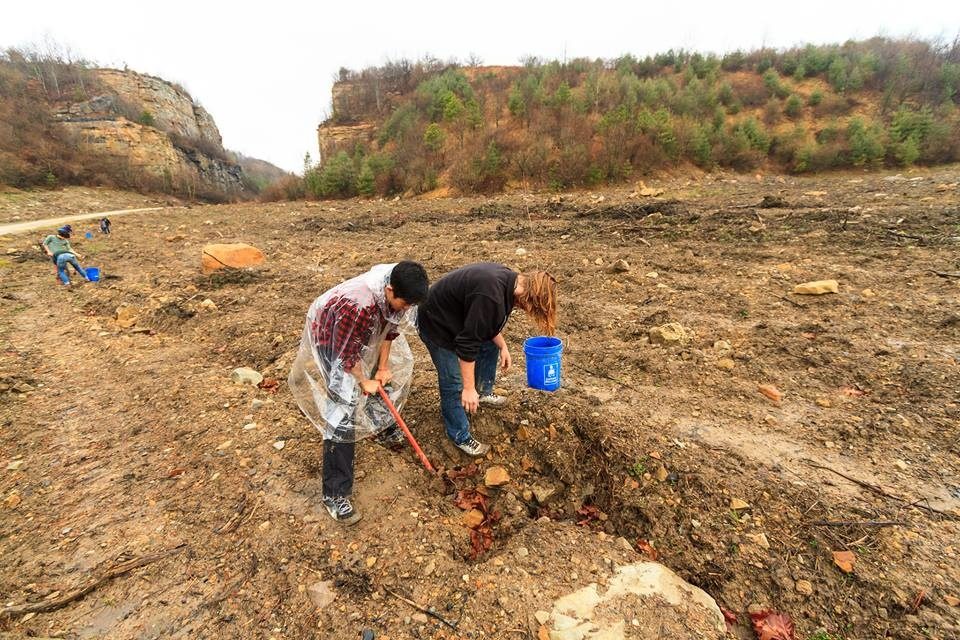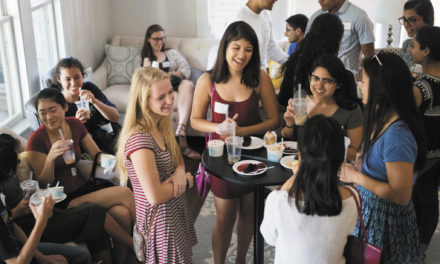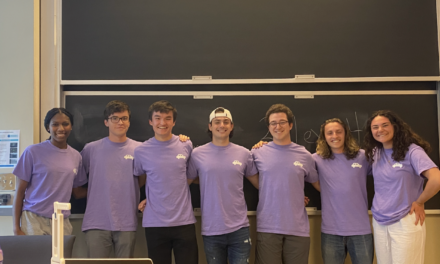While many Emory students were lounging by the pool at exotic, tropical locations or flying down the slopes at their favorite ski resorts, volunteers on Alternative Spring Break experiences were helping the homeless, volunteering at orphanages and hospitals or working on local farms.
This year, Volunteer Emory offered six Alternative Spring Break options to students interested in immersing themselves in a different community while participating in meaningful service work.
Students who took advantage of this opportunity spent their spring break in a community entirely foreign to them, working alongside locals to complete reform projects in order to gain a better understanding of issues such as homelessness, sustainability, youth advocacy, health care inequality and to ultimately effect positive changes in the areas they visited.
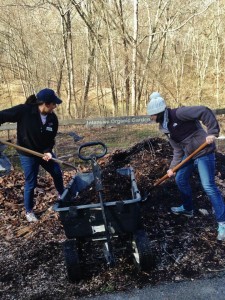
According to Co-Director of Alternative Breaks and College senior Amy Van Pelt, the 97 students that participated in the Alternative Spring Break program completed over 219 hours of hands-on service in addition to engaging in social justice dialogues and reflections.
The locations and objectives of the six service trips were chosen based upon communities in the Southeastern United States with the most need and the preference of the trip leaders. The co-directors of the Alternative Breaks program, Van Pelt and College senior Sara Stavile, encouraged the co-leaders of this year’s trips to help plan the options based upon their social justice interests.
According to Van Pelt, the purpose of the trips is to extend Volunteer Emory’s mission of “[collaborating] with agents of change for service projects and social justice work in order to promote learning about self and society.”
“The Alternative Break experience provides students with the opportunity to immerse themselves in the host community to perform hands-on service to learn about a social justice issue and to reflect on their positions in society,” Van Pelt said.
Despite the different focuses of the Alternative Spring Break options, the main objective for all six trips was to provide relief to communities in need and for students to experience cultural immersion.
Students also acquired a better understanding of certain social justice issues and of their own role in society.
“During the trips students learn about the social justice issue, but also how they fit into it — all of the conversations, reflections and service work that participants participate in during the trips involves the concept of privilege in some way,” Stavile said.
According to several students who participated in an Alternative Spring Break option through Volunteer Emory, their spring break was a success because they gained knowledge both about themselves and social justice issues, made new friends and found a greater appreciation for their lives in general.
For College freshmen Zach Cole and Talia Bernhard, their trip was both an eye-opening and a rewarding experience. On their five-day trip, they experienced homelessness, volunteered at homeless shelters, interacted with the homeless, became more aware of the controversy surrounding the social justice issue of homelessness and gained a greater appreciation for their lives.
Cole and Bernhard went on the Homeless Immersion trip from March 9 to 13 in Atlanta. They were two of nine people who participated in this particular Alternative Spring Break option.
“Our trip consisted of us staying in Atlanta, walking around to different shelters and organizations to learn about their work and hearing about their stories of experiencing homelessness,” Bernhard said.
According to Cole, the students on this trip underwent a simulation of homelessness for the duration of their break. “We we were not allowed to shower or brush our teeth,” Cole said. “We had to carry our stuff in big trash bags, and were given five dollars for the week.”
A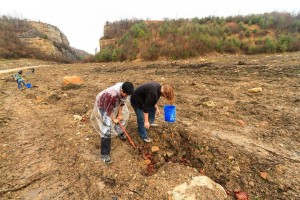 t the beginning of the trip, the students were given a loaf of bread and a jar of peanut butter. These staples provided 75 percent of their meals for the course of the week, Cole said. The rest of their consumption was supplied by several homeless shelters in Atlanta.
t the beginning of the trip, the students were given a loaf of bread and a jar of peanut butter. These staples provided 75 percent of their meals for the course of the week, Cole said. The rest of their consumption was supplied by several homeless shelters in Atlanta.
According to Bernhard, at the Metro Atlanta Task Force, a homeless shelter known for drug use and violence, the students helped clean the mattresses in the shelter.
At the City of Refuge, a homeless shelter for women and children, they took a tour of their facilities. There the students learned that the shelter provides a three-month program to help integrate homeless people back into society.
For two nights, the students slept in the backyard of one of the trip’s organizers. According to Cole, this experience taught them the importance of trade-offs. Cole claimed that a heavy blanket was hard to carry during the long walks in the day, but it provided warmth on a cold night. Some students carried the blanket and struggled with the extra load during the day, but were somewhat comfortable at night, while others experienced the alternative end of the trade-off.
The students also spent two nights at the Shrine of Immaculate Conception where they slept in the same room as the homeless.
“The Shrine is underneath a church. Different people bring meals for the homeless people,” Cole said. “They can sleep there, but they have to be out by six a.m. It is only open for the coldest months.”
The participants also went to the Central Outreach and Advocacy Center where they learned about how policy can be changed to reduce homelessness. Members of the trip found out about certain issues the homeless face in obtaining jobs due to a lack of proper identification resulting from the difficulty of tracking down their social security numbers and birth certificates.
They also learned about some discrepancies in the law concerning homeless people.
“People with a drug felony on their record are no longer eligible for food stamps, but people who have committed murder [are eligible],” Cole said.
Members of the trip were shocked by some of what they learned. “There are some illogical policies that could be changed to help rehabilitate and reintegrate homeless people into society instead of keeping them at the level they are,” Bernhard said.
Bernhard and Cole were both a bit hesitant at first when they signed up for the trip, but looking back on their experience, they are very enthusiastic towards their experience.
[quote_colored name=”” icon_quote=”no”]“It wasn’t relaxing and it wasn’t supposed to be. It was physically really tough, and there were some times when I felt like I was on the verge of a mental breakdown, but you push through and in the end are really grateful you went” [/quote_colored]
According to Bernhard and Cole, they gained many valuable lessons from their experience.
Cole discovered that although he could simulate homelessness physically, he was unable to truly understand the emotional component of being homeless. He knew that he would be able to push through the hunger and discomfort of walking everywhere because the trip would be over in five days, and he could go back to his life at Emory.
“We were limited in what we could eat so we were hungry and tired, but one thing that was impossible to simulate was the emotional stress of not knowing when homelessness was going to end,” Cole said.
Bernhard was struck by the inefficiency of certain policies related to homelessness. She believes that the reform of certain approaches, practices, and legislation could reduce the amount of homeless people by allowing them to help themselves get off the streets.
“If we were to reform our current policies, we could reach a place where people experiencing homelessness aren’t cast aside. They would have the opportunity to rise up and help themselves get out of their situation,” Bernhard said.
But, she is optimistic that such changes will be made: “There are plenty of people out there helping and willing to help.”
Members of the trip were inspired by the people they met and spoke with on their trip.
“A common theme throughout our trip was that everyone experiencing homelessness has a different narrative. It can be anyone and can be caused by anything. I think this is a common misperception,” Bernhard said.
Lastly, Cole said that his experience reaffirmed their thankfulness for their lives. “You actually feel it and it sticks with you,” Cole said. “You truly understand what people mean when they say you don’t know what you have.”
Although Bernhard and Cole were at first unsure about signing up for the trip, in the end they are really glad they took the risk.
[quote_regular name=”” icon_quote=”no”]“Personally I was really apprehensive about doing it. Going on it, there were times when I wasn’t enjoying it, but the amount I learned and how grateful I am outweigh the bad parts”[/quote_regular]
Bernhard and Cole both endorse their experience with their Alternative Spring Break choice. Cole even says that he would do it again, if given the chance.
For students interested in a weekend service trip through Volunteer Emory, there will be two more Alternative Weekend trips this year, one focusing on sex trafficking and domestic violence in Atlanta and another focusing on protecting the coasts in Savannah. Applications are due March 27 and the trips run from April 10-12.
— Lindsay Wilson, Staff Writer
lindsay.wilson@emory.edu | Lindsay Wilson (18B) is from Lafayette, Calif., majoring in marketing. Lindsay is also served as philanthropy chair of Alpha Delta Pi sorority and director of creativity for Goizueta Marketing Club. Last summer, she worked as a summer associate for Prophet: Brand and Marketing Consultancy.

